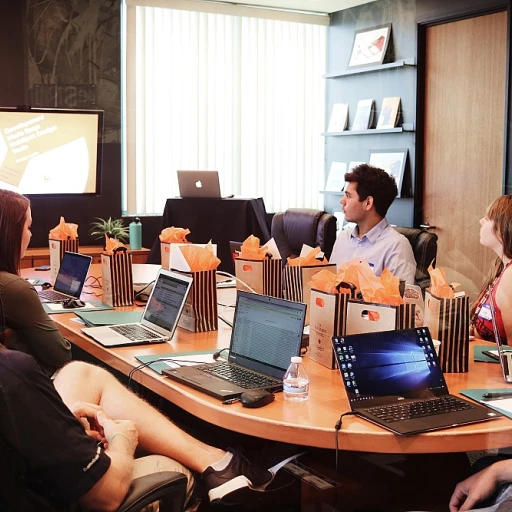
Understanding the Role of IT Support Engineers
Defining the Core Responsibilities
IT Support Engineers play a pivotal role in maintaining the technological backbone of organizations. They are responsible for ensuring that systems and software run smoothly, addressing technical issues, and implementing security measures. In the context of Managed Service Providers (MSPs), these engineers often handle multiple clients, which adds a layer of complexity to their duties.
Technical Expertise and Problem-Solving
Support engineers must possess a robust set of technical skills. These include proficiency in various software and systems, as well as the ability to troubleshoot and resolve issues efficiently. The demand for such expertise is high, with job openings frequently reposted days after being filled. Engineers are expected to stay updated with the latest technology trends, including artificial intelligence and security protocols.
Remote Work and Flexibility
The rise of remote jobs has transformed the landscape for IT support roles. Many positions now offer the flexibility to work from anywhere, which is particularly appealing in the United States. This shift requires engineers to adapt to remote support environments, where communication and problem-solving skills are paramount.
Career Levels and Opportunities
IT Support Engineers can find opportunities at various levels, from entry to senior positions. Mid-level roles often require a blend of technical and managerial skills, while senior level positions demand extensive experience and leadership capabilities. These roles offer pathways for career growth, with many engineers advancing to managerial or specialized technical positions.
For more insights into the role of staffing in MSP solutions, you can explore understanding the role of Aline Staffing in MSP solutions.
The Unique Challenges of MSP Staffing
The Challenge of Balancing Expertise and Flexibility
MSP staffing presents unique challenges that directly impact the way IT support engineers operate. In this dynamic environment, the demand for both expertise and flexibility is paramount. Organizations that manage multiple clients face the ongoing task of balancing their technical support requirements with the need to remain agile in case priorities shift suddenly. In a managed services provider (MSP) setting, an IT support engineer might find themselves juggling various tasks frequently. From addressing immediate technical support needs to longer-term systems optimization projects, the variability of day-to-day responsibilities requires a broad skill set. This includes proficiency with software applications, technical systems, and remote support troubleshooting. The unique demands also extend to the importance of continuous learning in the MSP industry. As technology evolves rapidly, engineers must stay updated with the latest trends and advancements, such as artificial intelligence and enhanced security measures. The ability to quickly adapt to new software or security systems can make the difference in maintaining high-quality service delivery. Remote jobs are becoming increasingly prevalent in the sector as well, adding another layer of complexity. IT support engineers often work remotely, which can either open up opportunities for job seekers across a wider geographic area or introduce challenges related to communication and coordination. In the United States, for instance, the rising trend of remote or "work from anywhere" positions has offered engineers the flexibility to be part of MSPs located anywhere, even while based miles away from operational headquarters. For those seeking growth in MSP staffing, understanding these unique challenges can set you apart from other candidates. By developing essential skills early on, and remaining open to mid-level or senior level opportunities, professionals can ensure they maintain their edge in this fast-paced domain. Whether you're looking for job openings in palo alto or evaluating the top skills needed for success, being strategic in approach will aid in career longevity. For a deeper dive into the complexities of MSP staffing, including how organizations in Sarasota navigate these challenges, you may want to explore further here.Essential Skills for IT Support Engineers in MSPs
Key Competencies for IT Support Professionals in MSP Environments
The role of an IT Support Engineer within managed service providers (MSPs) is both demanding and rewarding. Their diverse responsibilities range from handling technical support to ensuring the seamless functioning of software systems, which calls for a mix of hard and soft skills.
- Technical Expertise: IT Support Engineers need a solid foundation in systems and software. This expertise spans various domains including cybersecurity and new technologies like artificial intelligence, crucial for proactively mitigating security threats.
- Problem-Solving Abilities: Given the dynamic nature of MSP environments, engineers are often required to resolve complex issues on tight deadlines. Their problem-solving capabilities are paramount for efficiently tackling these challenges.
- Communication Skills: Clarity and precision in communication are critical, especially when dealing with clients or stakeholders who may not possess a technical background. Support engineers act as the liaison between technical teams and customers.
- Adaptability: With the rapid evolution in technology, particularly in the United States where most job openings are located, IT Support Engineers must quickly adapt to new tools and practices, ensuring they apply the most effective solutions.
- Remote Work Competency: As remote jobs grow in popularity, the ability to function autonomously while maintaining collaboration with a dispersed team has become a top skill.
While technical proficiency and experience are indispensable, the ability to navigate mid-level and senior-level challenges is often what distinguishes a good support engineer from a great one. Support engineers, whether starting at a mid or senior level, should continually refine their top skills.
For those looking to further explore the demands and strategies of IT support roles in MSP staffing, this comprehensive resource provides in-depth insights into overcoming MSP-specific challenges.
Career Pathways and Growth Opportunities
Career Development and Progression for IT Support Engineers
Navigating the career ladder as an IT support engineer, particularly within the Managed Service Provider (MSP) sector, reveals a dynamic landscape full of opportunities. It's essential to understand the pathways available from entry-level roles to senior positions which often encompass a broad range of technical and strategic responsibilities. In the early stages, individuals often start in junior or mid-level positions, focusing on developing foundational skills in technical support and systems management. These roles are critical for gaining hands-on experience with software, systems, and security protocols. As engineers advance, they may find themselves moving into more complex problem-solving and systems integration roles, often requiring enhanced technical skills and a deep understanding of privacy policies and artificial intelligence applications. ### Progressing to Senior Positions For those who aspire to senior level roles, a rich blend of experience and advanced skills such as strategic planning, project management, and leadership are crucial. These positions not only demand top technical skills but also strategic oversight ensuring efficient resource management and client satisfaction. As an engineer, transitioning to a senior level job can be further bolstered by obtaining certifications relevant to cutting-edge technologies and emerging trends. Certifications in areas like Palo Alto Networks, data security, and project management can significantly enhance a candidate’s appeal. ### The Role of Remote Work and Location The rise of remote jobs has also ushered new opportunities for IT support engineers in MSP settings. Whether located in the United States or internationally, engineers can explore job openings without geographical constraints. This flexibility allows candidates to optimize their career trajectories by opting for positions in renowned firms, regardless of their physical location. Moreover, roles designated as remote or hybrid can offer unique challenges and responsibilities. Engineers will benefit from gaining experience in remote support and team collaboration platforms, which are increasingly vital in today's interconnected work environment. ### Looking at the Larger Picture Overall, the career path of an IT support engineer in an MSP setting is marked by continual learning and growth opportunities, driven by the constant evolution of technology. As with any high-demand field, staying updated with the latest trends and continually improving skill sets remains a cornerstone for success in this career path. Supporting roles are not merely jobs; they are stepping stones in a rapidly advancing tech landscape.Navigating the Job Market for IT Support Engineers
Strategic Steps for Job Seekers in IT Support
Navigating the job market as an IT support engineer requires a strategic approach to capitalize on opportunities within MSP staffing. Here are some key strategies to boost your career prospects:- Identify Your Career Goals: Clarify whether you aim for remote jobs, or aspire to reach a senior level position. Understanding your objectives will guide your job search and career development plan.
- Leverage Online Job Portals: Platforms offering engineer jobs in the United States are abundant. Utilize these to find job openings relevant to your skills and experience, whether you are a mid-level support engineer or a more experienced senior professional. Keep an eye out for roles labeled as "reposted days ago" or "job openings" that have been "ago saved," which often indicate urgent hiring needs.
- Tailor Your Resume: Highlight top skills, such as technical expertise, systems management, and software proficiency. This will ensure your qualifications stand out to recruiters looking for candidates with specific technology skills.
- Stay Updated on Industry Trends: Familiarize yourself with emerging technologies, such as artificial intelligence, that are reshaping IT support roles. This includes understanding the implications of these technologies on technical support and security.
- Network Strategically: Connect with industry professionals and participate in forums discussing MSP staffing. This can expose you to "annually mid" level roles, as well as insights into current industry practices.
Future Trends in MSP Staffing and IT Support Roles
Anticipating Future Developments in IT Support Roles
The landscape of IT support engineering is continuously evolving, driven by advances in technology and changing business needs. Here's what to expect in the future:- Remote Work Expansion: The rise of remote work, accelerated by global events a few years ago, is here to stay. IT support engineers need to adapt to supporting remote systems securely while ensuring smooth software and hardware operations.
- Increased Emphasis on Cybersecurity: With cyber threats on the rise, technical support roles will increasingly focus on cybersecurity. Engineers must stay updated on security protocols and top skills related to protecting systems from breaches.
- Integration of Artificial Intelligence: AI is transforming how companies manage IT support. Tasks that were historically manual can now be automated, paving the way for support engineers to take on more complex jobs, enhancing their career growth opportunities.
- Demand for Diverse Skills: IT support roles are no longer limited to troubleshooting. With integration of new technologies, engineers in top positions must develop a wide range of skills—from cloud technologies to privacy policy implementations.
- Growth in Specialization: There's a rise in specialized roles, pushing engineers to target mid or senior level positions. Staying abreast of technology trends can help professionals find relevant job openings.













